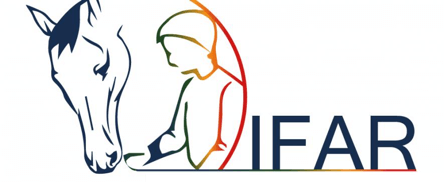NHA CEO Lyndon Barends has broken new ground for the South African racing industry by acknowledging a Duty Of Care to the Thoroughbred and committing to formally embedding before / during / post racing care.
In his hard-hitting contribution to the September 2017 NHA newsletter, he writes:
“The IFAR (International Forum for the Aftercare of Racehorses) Conference held during the Pan American Conference resonated well with me and was the final stimulus that made it abundantly clear that the Racing Authorities must take the lead to ensure that before/during/beyond racing care becomes embedded within the business fabric of the sport.
It’s critical that we accept that there is a DUTY OF CARE that we cannot and dare not IGNORE. The aftercare of racehorses makes Business Sense. It makes ethical Business Sense!
I will propose to our Board that we adopt the philosophical view that we need to move away from the practice that aftercare is at the mercy or the goodwill gestures of a few individuals with good conscience. Also, that we move towards embedding post racing options within the essence and fabric of our business practice. It must become the responsibility of all involved in the sport. We all benefit from the horse.
The Regulatory Authority registers, licenses or levies nearly all or most of those involved in the industry and can therefore exercise the first call to action with regards to the DUTY OF CARE.
We must institutionalise before/during/post racing care and now specifically post racing options.
Furthermore, I will propose to the National Board that in order to enshrine this into our modus operandi, we need to take the first step and ensure that it’s an expense item in our budget. This means that we will have to re-prioritise our business operational expenditure to incorporate this aspect as part of our normal business practice. This is NOT OPTIONAL.
We hopefully will not look to reinvent the wheel, but rather consolidate our many disparate goodwill and well-meaning but uncoordinated programmes. This is where alignment becomes important.
We the NHA use play an umbrella role and steer the industry efforts around an overall focussed, consolidated, aligned and institutionalised programme. Collaboration with industry lobbyists, role-players and activists will be non negotiable to identify post racing options and various service delivery agents, venue and best practice programmes.
Some of these initiatives will include but not be limited to:
- Retraining for equestrian competitions
- Therapeutic uses
- Educational opportunities
- Identifying sanctuaries for horsecare
- A process of retaining for other useful purposes
My opinion is that, the earlier in the lifespan of the horse we start the exit planning, the better. The Racing Authority must make the first budgetary sacrifice/commitment. It then becomes easier to solicit from others to build a sustainable programme.
A mining company must rehabilitate minefields and affected communities. It’s an expense item and budget provision. Oil companies have environmental rehabilitation budgets. The question is – what makes us any different?
In conclusion, horse racing must have the post racing welfare at the core of its responsible business practice. It must be uncompromising of this as part of our DUTY OF CARE programme – before/during/beyond racing just as we should care for all the people in our employ which can’t also be neglected.”
